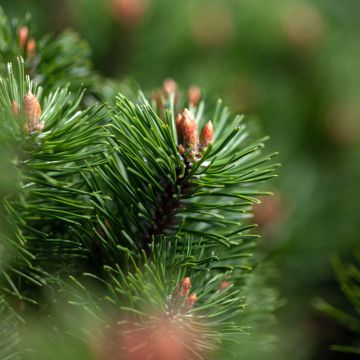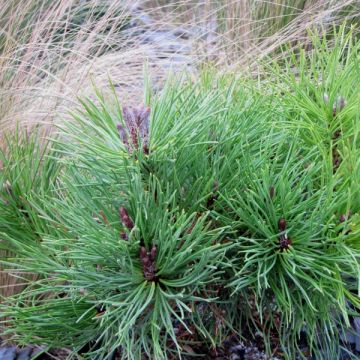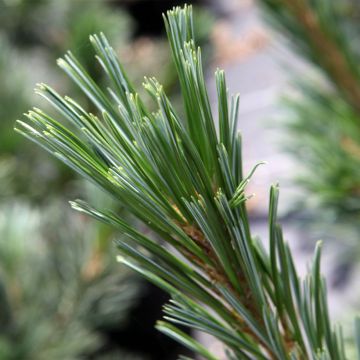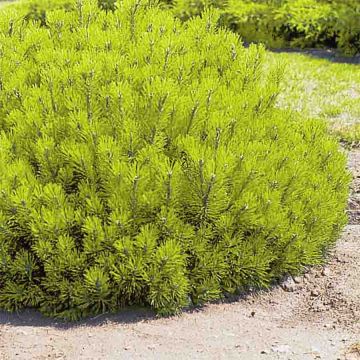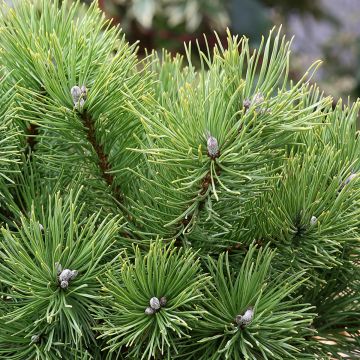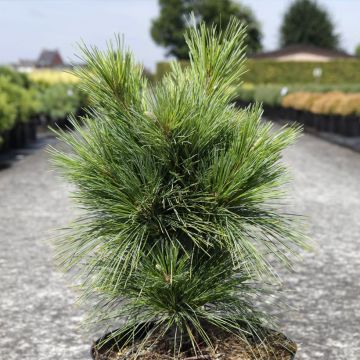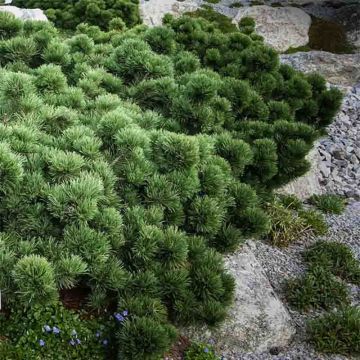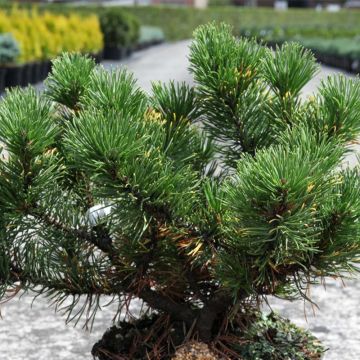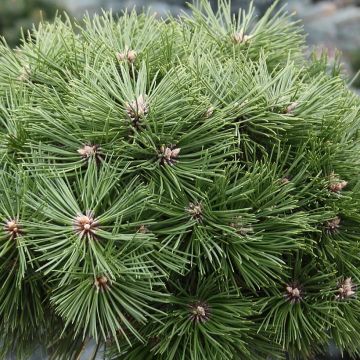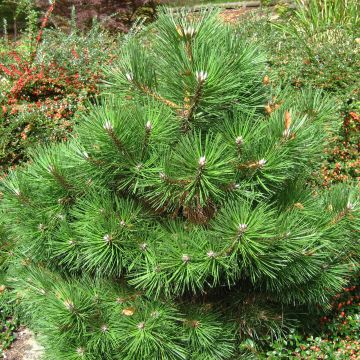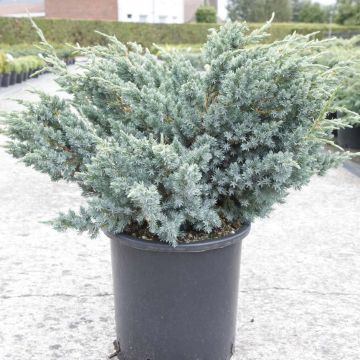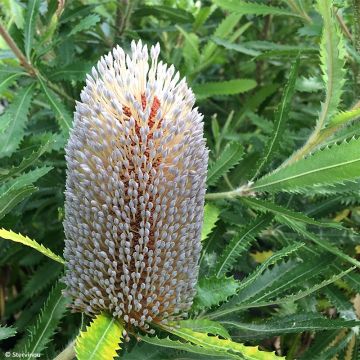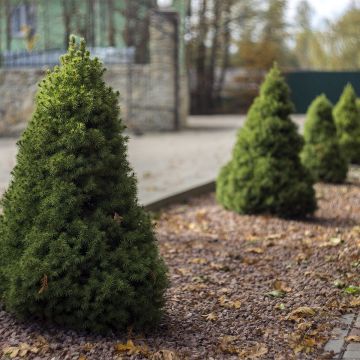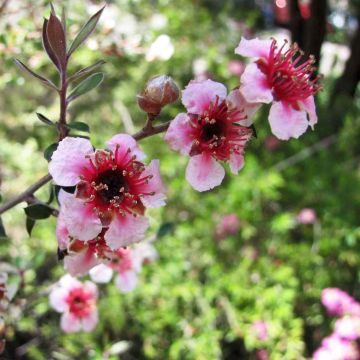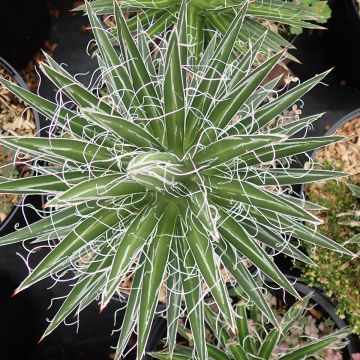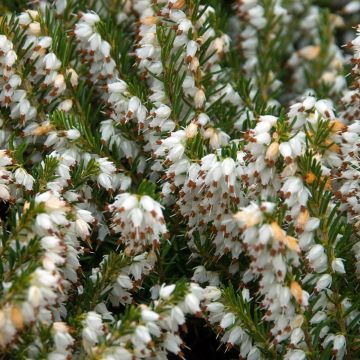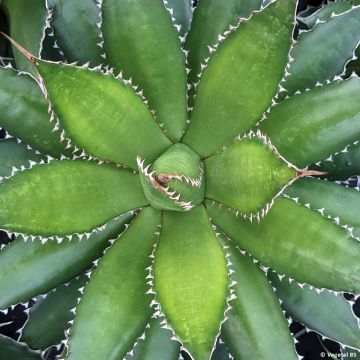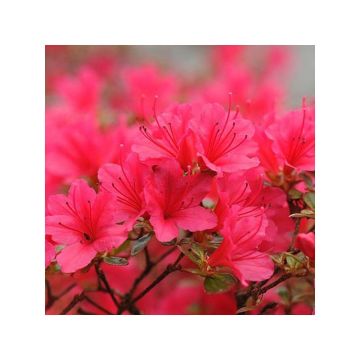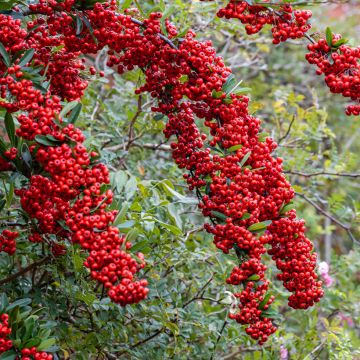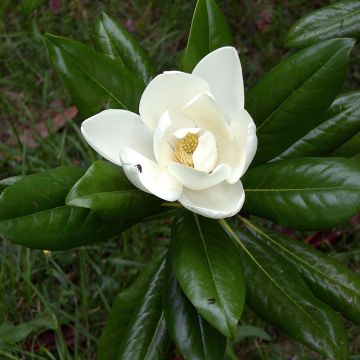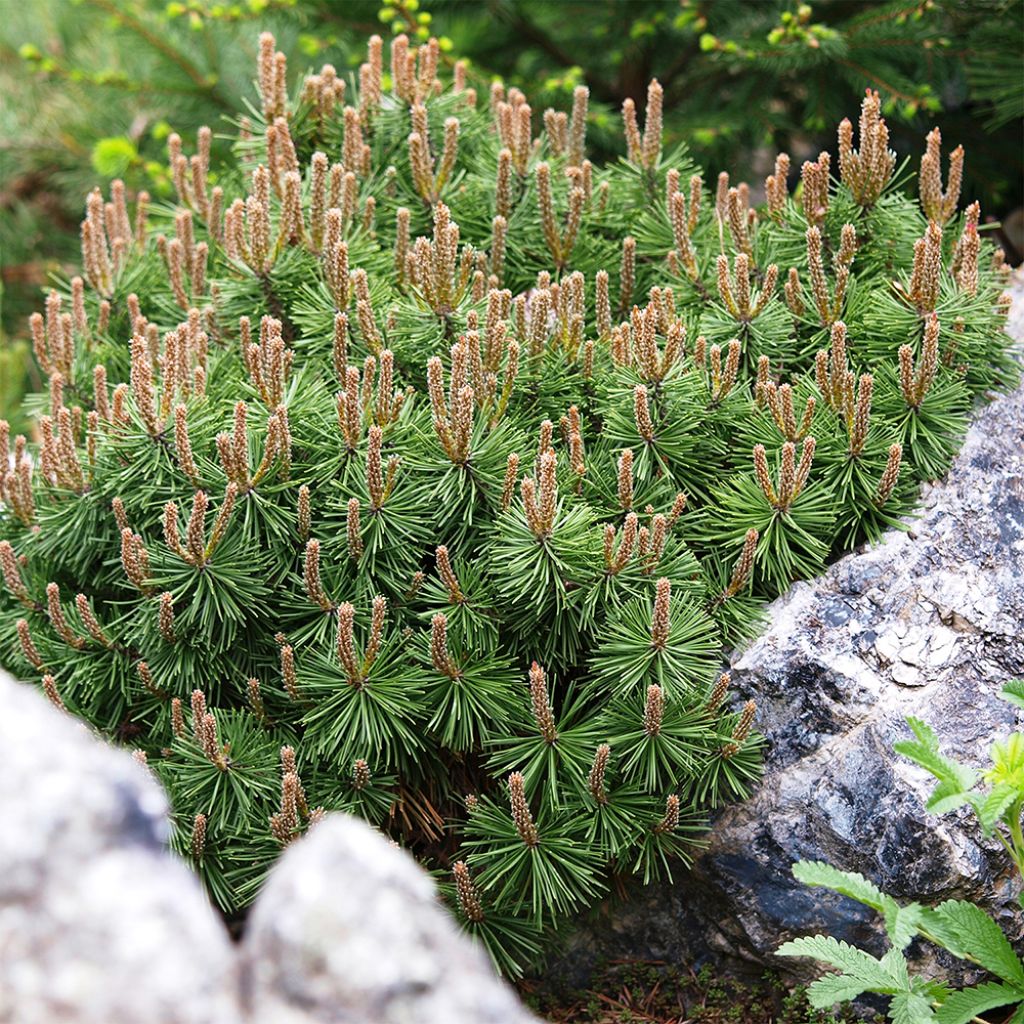

Pinus mugo Mops - Dwarf Mountain Pine
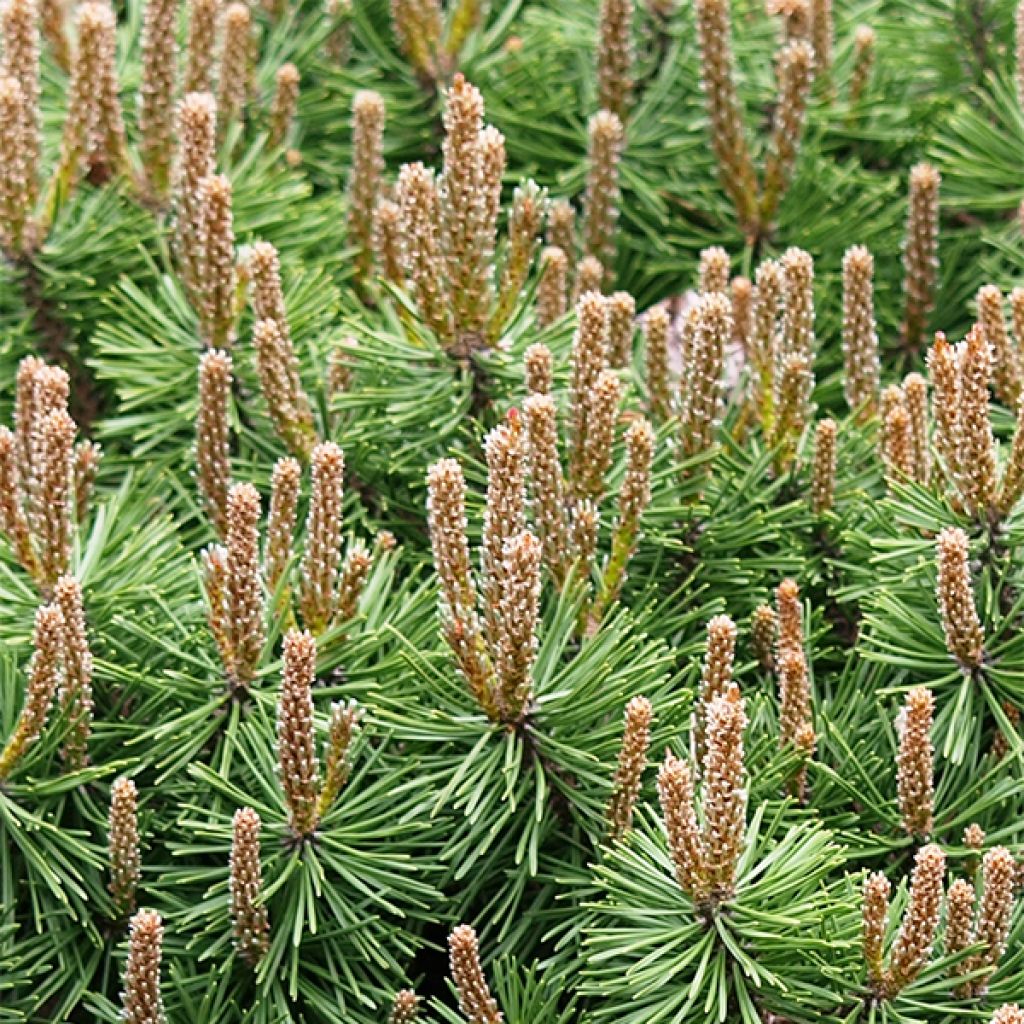

Pinus mugo Mops - Dwarf Mountain Pine
Pinus mugo Mops - Dwarf Mountain Pine
Pinus mugo Mops
Dwarf Mountain Pine, Swiss Mountain Pine, Mugo Pine
This item cannot be shipped to the selected country
Delivery charge from €5.90
Delivery charge from €5.90
Delivery to Corse prohibited
More information
Schedule delivery date,
and select date in basket
This plant carries a 24 months recovery warranty
More information
We guarantee the quality of our plants for a full growing cycle, and will replace at our expense any plant that fails to recover under normal climatic and planting conditions.
From €5.90 for pickup delivery and €6.90 for home delivery
Express home delivery from €8.90.
From €5.90 for pickup delivery and €6.90 for home delivery
Express home delivery from €8.90.
Delivery to Corse prohibited: UE law prohibits the import of this plant from mainland France to Corse as part of the fight against Xylella fastidiosa. Please accept our sincere apologies.
More information


Does this plant fit my garden?
Set up your Plantfit profile →
Description
Pinus mugo 'Mops' is a small mountain pine, with an almost spherical and compact habit when young, which over time forms a very dense, more spreading mass, with a fluffy and somewhat irregular texture. Its ascending and very tight branches are covered with fairly short, intense green needles. Due to its reduced development and slow growth, it is well-suited for a small garden, where it can liven up a rockery, or make a statement in a container on the terrace. It is an extremely hardy conifer and truly undemanding, which does not require pruning. It thrives in ordinary soil and a sunny exposure.
Pinus mugo, also known as Mountain Pine or Mountain Pine Tree, is an evergreen conifer of the pine family endemic to the mountains of Europe. It is found at the subalpine level, avoiding the summer heat, from the Spanish sierras, through the high alpine and Pyrenees massifs, to the Balkans. It only descends to an altitude of 200 m (656 ft 2 in) in Central Europe. In the wild, it slowly reaches 3 to 4 m (9 ft 10 in to 13 ft 1 ft) in all directions, adopting a windswept silhouette that reflects its habitat. It is a very hardy species, well adapted to the mountain climate.
The 'Mops' variety is distinguished from the wild species by its small size, short needles and very compact habit, which is initially spherical and then spreading and bushy. Its growth is slow, so a 25-year-old specimen will not exceed 80 cm (31.5 in) in height and 1 m (3 ft 4 in) in width. Over time, this small shrub widens out, eventually forming a rounded pine, wider than it is tall, measuring 1 m (3 ft 4 in) in height and 1.2 m (3 ft 11 in) in diameter. Its small, tightly packed branches are covered with fine needles, not exceeding 6 cm (2.4 in) in length, grouped in pairs and arranged in brushes around the branches. The young shoots emerge in spring from light brown and resinous buds. On its trunk, the bark is brown-grey, while it shows a green and shiny hue, turning to black, on the branches.
The 'Mops' dwarf mountain pine will find its place in all gardens, even the smallest ones. It can be planted as a standalone specimen, in a massif or in a rockery. It can also be grown in a large pot on the terrace or balcony. It works wonders in a Japanese garden and pairs well with large stones, the geometric lines of swimming pools, and masonry works. It can be combined with complementary grasses or dwarf conifers with a prostrate habit (Juniperus horizontalis Blue Chip), globose (Picea abies Little Gem), or columnar (Juniperus communis 'Sentinel'). The true graphic qualities of conifers naturally impose themselves in the design of a contemporary garden, which prefers the aesthetics of shapes, silhouettes, and textures over the dance of flowers. These plants, with their reassuring permanence, structurally define a flower bed, mark pathways and border the terrace, easily replacing the strong presence of trimmed boxwood or holly. The key is to play with volumes and colours.
Report an error about the product description
Pinus mugo Mops - Dwarf Mountain Pine in pictures


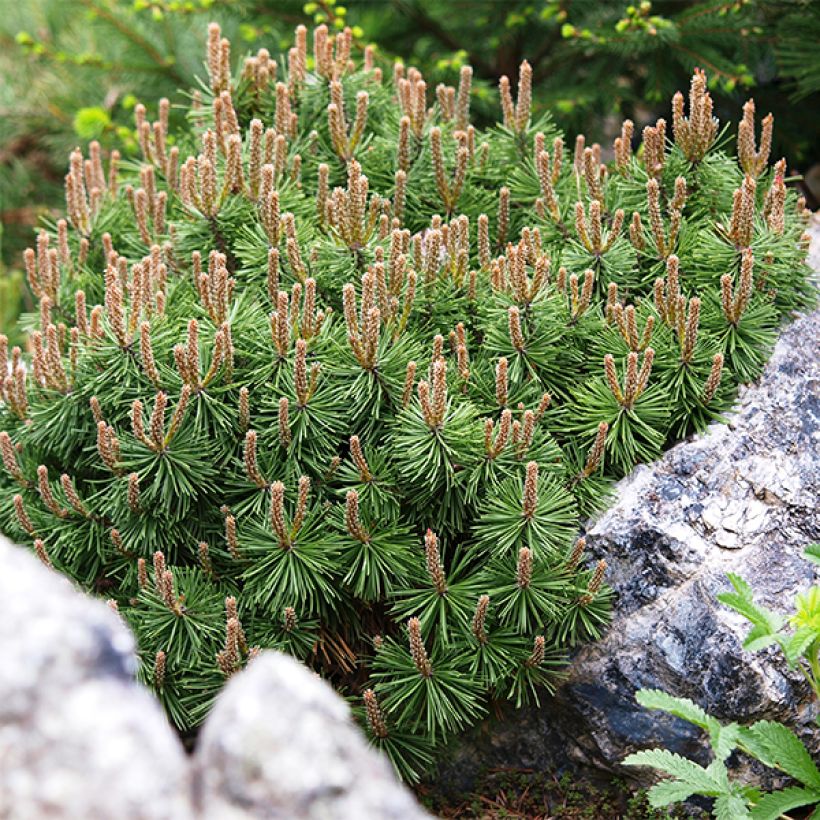



Plant habit
Foliage
Botanical data
Pinus
mugo
Mops
Pinaceae
Dwarf Mountain Pine, Swiss Mountain Pine, Mugo Pine
Cultivar or hybrid
Other Pinus - Pine
Planting and care
Pinus mugo 'Mops' can be planted from September to November and from February to June in well-drained soil, which should be moist to dry, even poor, whether it is limestone or, alternatively, peaty and acidic. It only fears extremely hot temperatures. Choose a sunny location or, at worst, a partially shaded position in a warm climate. Soak the root balls well before planting. Optionally, add organic compost at planting and water generously in the first years, and in case of prolonged drought. You can apply a special conifer fertiliser every year in April and cultivate the soil in summer. This very hardy conifer (down to at least -30 °C (22 °F)) does not need to be pruned. However, you can enhance its compact habit or keep it in very small proportions by annually pruning the branches by half their size, from September to November.
Planting period
Intended location
Care
-
, onOrder confirmed
Reply from on Promesse de fleurs
Evergreen shrubs
Haven't found what you were looking for?
Hardiness is the lowest winter temperature a plant can endure without suffering serious damage or even dying. However, hardiness is affected by location (a sheltered area, such as a patio), protection (winter cover) and soil type (hardiness is improved by well-drained soil).

Photo Sharing Terms & Conditions
In order to encourage gardeners to interact and share their experiences, Promesse de fleurs offers various media enabling content to be uploaded onto its Site - in particular via the ‘Photo sharing’ module.
The User agrees to refrain from:
- Posting any content that is illegal, prejudicial, insulting, racist, inciteful to hatred, revisionist, contrary to public decency, that infringes on privacy or on the privacy rights of third parties, in particular the publicity rights of persons and goods, intellectual property rights, or the right to privacy.
- Submitting content on behalf of a third party;
- Impersonate the identity of a third party and/or publish any personal information about a third party;
In general, the User undertakes to refrain from any unethical behaviour.
All Content (in particular text, comments, files, images, photos, videos, creative works, etc.), which may be subject to property or intellectual property rights, image or other private rights, shall remain the property of the User, subject to the limited rights granted by the terms of the licence granted by Promesse de fleurs as stated below. Users are at liberty to publish or not to publish such Content on the Site, notably via the ‘Photo Sharing’ facility, and accept that this Content shall be made public and freely accessible, notably on the Internet.
Users further acknowledge, undertake to have ,and guarantee that they hold all necessary rights and permissions to publish such material on the Site, in particular with regard to the legislation in force pertaining to any privacy, property, intellectual property, image, or contractual rights, or rights of any other nature. By publishing such Content on the Site, Users acknowledge accepting full liability as publishers of the Content within the meaning of the law, and grant Promesse de fleurs, free of charge, an inclusive, worldwide licence for the said Content for the entire duration of its publication, including all reproduction, representation, up/downloading, displaying, performing, transmission, and storage rights.
Users also grant permission for their name to be linked to the Content and accept that this link may not always be made available.
By engaging in posting material, Users consent to their Content becoming automatically accessible on the Internet, in particular on other sites and/or blogs and/or web pages of the Promesse de fleurs site, including in particular social pages and the Promesse de fleurs catalogue.
Users may secure the removal of entrusted content free of charge by issuing a simple request via our contact form.
The flowering period indicated on our website applies to countries and regions located in USDA zone 8 (France, the United Kingdom, Ireland, the Netherlands, etc.)
It will vary according to where you live:
- In zones 9 to 10 (Italy, Spain, Greece, etc.), flowering will occur about 2 to 4 weeks earlier.
- In zones 6 to 7 (Germany, Poland, Slovenia, and lower mountainous regions), flowering will be delayed by 2 to 3 weeks.
- In zone 5 (Central Europe, Scandinavia), blooming will be delayed by 3 to 5 weeks.
In temperate climates, pruning of spring-flowering shrubs (forsythia, spireas, etc.) should be done just after flowering.
Pruning of summer-flowering shrubs (Indian Lilac, Perovskia, etc.) can be done in winter or spring.
In cold regions as well as with frost-sensitive plants, avoid pruning too early when severe frosts may still occur.
The planting period indicated on our website applies to countries and regions located in USDA zone 8 (France, United Kingdom, Ireland, Netherlands).
It will vary according to where you live:
- In Mediterranean zones (Marseille, Madrid, Milan, etc.), autumn and winter are the best planting periods.
- In continental zones (Strasbourg, Munich, Vienna, etc.), delay planting by 2 to 3 weeks in spring and bring it forward by 2 to 4 weeks in autumn.
- In mountainous regions (the Alps, Pyrenees, Carpathians, etc.), it is best to plant in late spring (May-June) or late summer (August-September).
The harvesting period indicated on our website applies to countries and regions in USDA zone 8 (France, England, Ireland, the Netherlands).
In colder areas (Scandinavia, Poland, Austria...) fruit and vegetable harvests are likely to be delayed by 3-4 weeks.
In warmer areas (Italy, Spain, Greece, etc.), harvesting will probably take place earlier, depending on weather conditions.
The sowing periods indicated on our website apply to countries and regions within USDA Zone 8 (France, UK, Ireland, Netherlands).
In colder areas (Scandinavia, Poland, Austria...), delay any outdoor sowing by 3-4 weeks, or sow under glass.
In warmer climes (Italy, Spain, Greece, etc.), bring outdoor sowing forward by a few weeks.

































